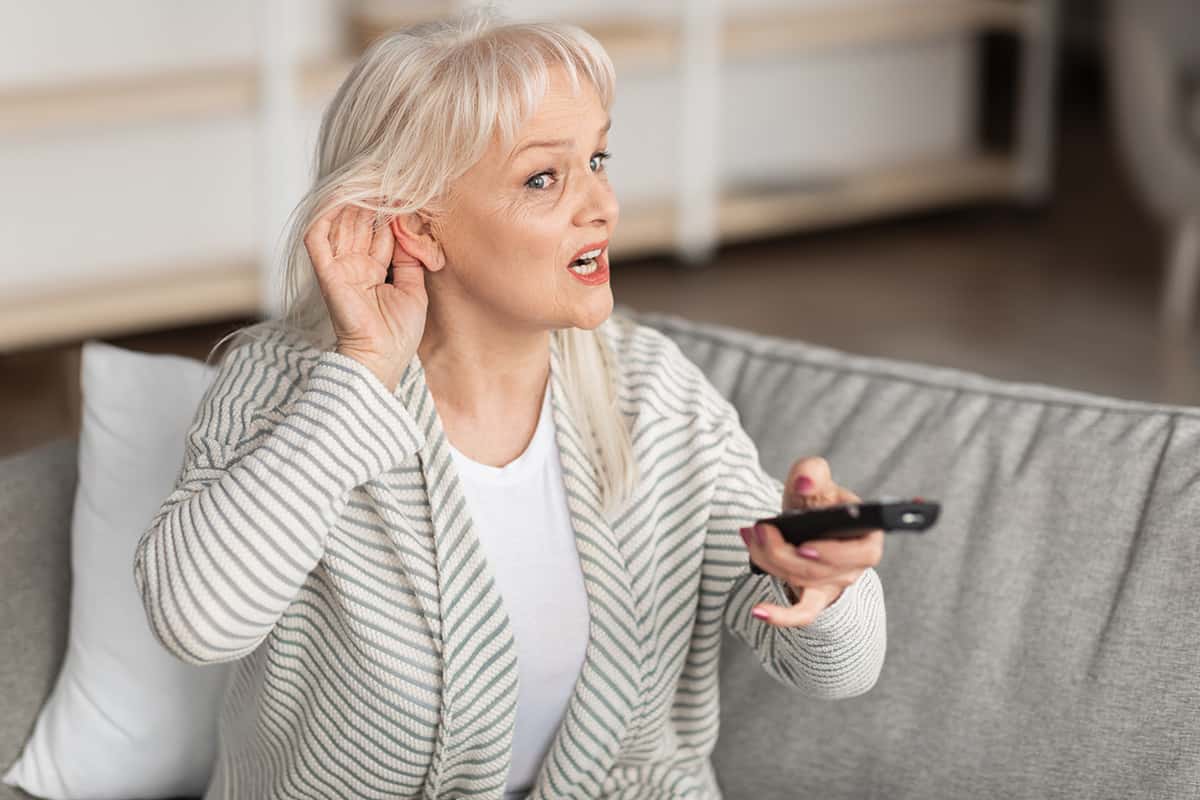Hearing loss is one of the most common hearing problems affecting older adults in the US. In one population-based study in Beaver Dam, 21% of adults aged 48-59 had hearing loss, while 90% of those 80 years or older had hearing loss.
This shows that hearing loss progresses with age, as well as with other factors. This is caused by a gradual decrease in hearing sensitivity, which starts in our 20s but becomes noticeable in the late 50s and 60s.
Why Does Hearing Deteriorate With Age?
Natural deterioration in your hearing ability is mainly caused by degeneration within the inner ear, and in the neural pathways that connect to the brain.
The inner ear contains tiny hair-like projections (stereocilia) that convert sound into an electrical signal for the brain to interpret. These structures can be damaged for any number of reasons, resulting in reduced sensitivity to sounds.
In the brain, the neural pathways between the ear and the brain can also degenerate, sending weaker electrical signals to the brain and resulting in reduced hearing.
Factors That Help Speed Up or Slow Down Hearing Loss
While hearing function declines naturally with age, there are many factors that speed it up including:
- Smoking
- Diabetes
- Exposure to loud sounds such as music, firearms, lawnmowers, and aircraft
- Heart disease
- Some medications that damage cells in the ear
- Genetics can also make you more vulnerable to hearing loss
Hearing loss can also be quick and sudden, such as when explosive sounds rupture the eardrum. You can also suffer head trauma, severe infections and disease, neural conditions (such as multiple sclerosis), and autoimmune diseases.
What You Can Do to Slow Down Hearing Loss Now
It is not yet possible to prevent age-related hearing loss. However, you can slow it down by avoiding these risk factors and protecting your ears.
Loud occupational and recreational sounds are one of the biggest causes of accelerated hearing loss. Always wear earplugs when attending loud events or working with loud machineries, such as agricultural work, going to the speedway, or mowing your lawn.
By reducing exposure to loud sounds and wearing ear protection, you can keep your ears safe for longer. Other ways to protect your hearing include:
- Quit smoking
- Manage your blood sugar and blood pressure
- Maintain a healthy weight
- Seek treatment for any health concerns
- Get your ears cleaned professionally to get rid of wax buildup
In addition, consider regular hearing tests to help catch hearing loss early and start treatment.
Do Hearing Aids Prevent Hearing Loss?
No, hearing aids don’t prevent hearing loss. However, they do help your brain adjust to your hearing deterioration and maintain your hearing ability.
Most importantly, hearing aids keep your neural pathways strong and functional. This is why experts recommend wearing your aids all day, every day, to keep your hearing functions strong and reduce hearing fatigue.
Hearing aids keep up with the progress of hearing loss, but you may need a new set approximately every 5 years, possibly sooner if your deterioration is faster.


